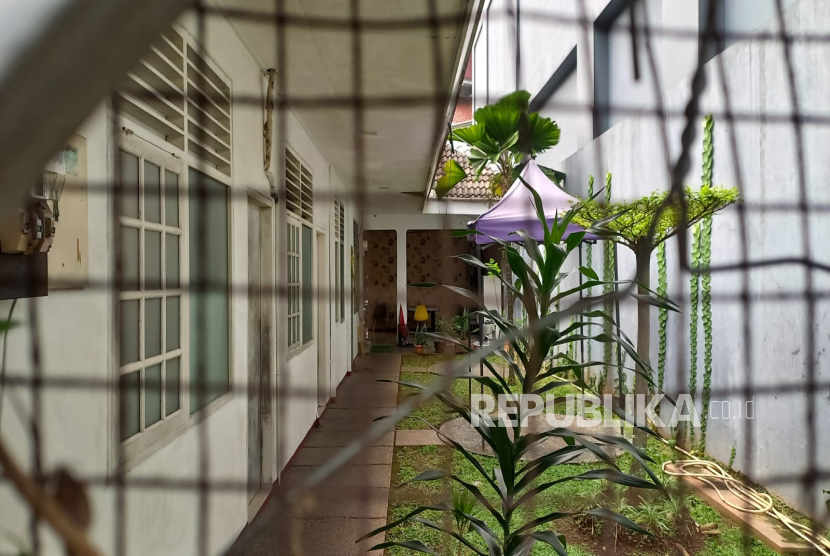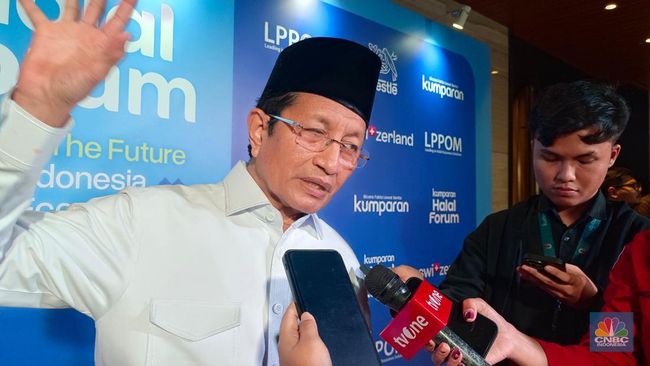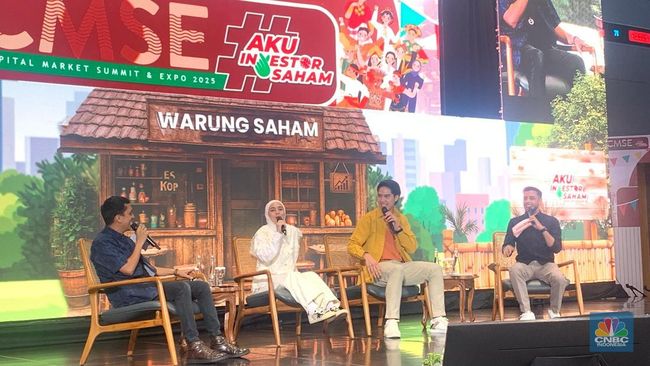Three movies in, Knives Out is really showing its range. After starting out with a mystery on a cozy New England estate, followed by a sequel set on a Greek island owned by an Elon Musk-style tech bro, the series gets much darker with Wake Up Dead Man. This time, director Rian Johnson crafted a locked-door mystery set inside of a small-town church, with a story that explores issues of faith and the divine.
Each movie has had its own distinct style, but Johnson says there wasn’t a master plan to explore each of these genres one by one. “I actually think it’s very important that I just follow my instinct for each one,” he tells me. “I don’t want to plan them in advance.”
Ahead of Wake Up Dead Man’s theatrical premiere on November 26th (and Netflix premiere on December 12th), I talked with Johnson about what makes Knives Out different from other mysteries, why the latest film is his most personal, the importance of grounding things in real world, and after The Verge’s cameo in Glass Onion, whether our humble website will ever make an appearance in the series again.
The interview has been edited and condensed for clarity.
Now that you’ve done three of these, is there anything you’ve learned about what makes this series distinct or unique?
I haven’t really taken a breath and thought about the unifying factor. There are two things that I struck on very early with this series and served it well, and maybe this is connective tissue. First of all, knowing instinctively just from being a fan of whodunits, the detective is not the main character. All of these movies are anchored by a character who the audience actually has empathy for, and who has skin in the game, who wants something and can’t get it. Ana [de Armas]’s character in the first one, Janelle [Monáe]’s in the second, and Josh O’Connor’s in this one. In that way, the detective plays a supporting role.
The other element of it that was at least unique to this when I started is, reading Agatha Christie books growing up, and then seeing adaptations of them, those adaptations were always period pieces set in England. So they always had a timeless, disconnected-from-our-current-reality vibe to them. With Knives Out, I said I’m going to throw out the idea of timelessness and just unapologetically write to the present moment. I’ve tried to do that with all three of these. For me, that’s what gives the red meat that I can dig into with writing these things. The mystery stuff is fun, but the way that the mystery can engage with things that are on all of our minds living in this, the year of our lord 2025, that’s where the real juice is for me.
It’s funny you mention the current references. When I got out of the premiere for the movie my coworkers were asking if The Verge is in Wake Up Dead Man and I had to break the news that we’d been replaced by Substack.
Oh god, I’m sorry. The Verge, as you know, I have it in my bookmarks, I check it every day. So it’ll be back.
For the timeless aspect, Wake Up Dead Man is interesting because in a lot of ways, particularly visually, it does have that out-of-time feel, but it still has those modern references. Was it a challenge to balance those two things?
It’s kind of instinctual. This one is set in a country church, which itself is an old environment. But I was very conscious of, beyond just the thematic political elements and all of that, I still wanted to make sure that — whether it’s Daryl McCormack’s character as an influencer who has his iPhone rig filming everything, or whether it’s pop culture references — I wanted to make sure that we never lost the thread that this is happening here and now.
Given how fast everything moves, do you ever worry about those references being out of date by the time a movie actually comes out?
I always worry about that. In this one, for example, the couple of references that we have to pop culture, they’re just jokes; there’s a Star Wars one and one about Netflix. I figured neither of those things were going anywhere in a year.
With the different themes for each movie, did you pre-plan any kind of strategy for the series? Like, I’m going to start with a cozy mystery and then work up to a gothic locked-door mystery.
Not only was there no planning, but when we made the first one I had no idea if we’d be able to make more. I actually think it’s very important that I just follow my instinct for each one. I don’t want to plan them in advance. In part, I’m having the same experience the audience is having, with experiencing one movie and then, ‘Well, what would be a really different thing to do next?’ Not that you’re just being reactive, there’s a lot more to it than that, but that’s part of it for me. When I make a movie, I’ve lived in that world for several years, it’s a little like having the same thing for lunch every day. There’s an instinct to try something different and shake it up.
I also don’t want to pre-plan because the style and the vibe of the movie is very much baked into what the movie is and what it’s about and what the themes are. I especially want to be reacting to where I’m at in life at that moment. And that’s going to be tied up in the world that I’m reading about, and the present moment that we’re all living in. That’s a big part of these movies for me. Each one is very much a reaction to the present moment.
So what was the starting point here then?
It all started with faith. I knew I wanted to do something where I dug a little deeper for myself and grounded it, so I figured the best way to do that was to make it about something very personal. I grew up very, very Christian. It was not just that I was in a religious household; Christianity and my relationship with Christ was how I framed the world around me, through my childhood and up until my early 20s. I’m not a Christian anymore, I’m not a believer. So it’s something that holds a very complicated place inside me.
The first decision I made was, let’s see if I can have a multifaceted conversation with myself about this topic that doesn’t feel didactic or finger-waggy, but at the same time isn’t toothless. And let’s see if I can do that within the context of one of these movies; a big, entertaining Benoit Blanc movie. That then led to an impossible crime being fun to attempt, and would also pair very well with this place where miracles are something that are in the air. And that led to other decisions about the movie.
Given how we still don’t really know a lot about Benoit at this point, do you find you’re learning about him yourself as you’re writing each movie?
Yeah, because I feel like, for me, it’s not that interesting building out a backstory for Blanc. His function is the detective in these movies. And I want to learn about him through his purpose of solving each case that is its own movie. That sounds very basic and obvious maybe, but what that translates to for me is that it forces me to reveal character first of all through action, but also through his relationship with the protagonist of each film. In this one it’s Josh O’Connor’s character, Father Jud. I think we learn quite a bit about Blanc in this one, but we learn it through his relationship with Father Jud as they try to solve this case together. Which is all to say that I don’t want to have some kind of concrete backstory about Blanc that we have to be slaves to. I want to use Blanc in each story I’m telling as effectively as possible.
I know you’ve said before that you approach constructing each mystery like designing a crossword puzzle. But what does that actually mean in practice?
Part of that analogy is just that it’s elbow grease. Part of it is having little moments of inspiration, and part of it is staring at it for a while and just grinding it out. But there is also another layer of connection where you’re solving problems with every single step, and all those problems need to interlock in a way that forms a whole that feels symmetrical and complete. There is an element of puzzle solving to figuring out the mystery element of this.
Believe it or not, 90 percent of the work of the mystery goes into making it as simple as possible. I know these films feel very complex, but so much goes into making sure that the audience’s linear experience while they’re watching it is not looking at a crossword puzzle, but is being drawn through the whole thing. And it’s only upon reflecting after the movie is over that you see all the intricacies and it feels like a more complex thing.
Follow topics and authors from this story to see more like this in your personalized homepage feed and to receive email updates.

 4 hours ago
2
4 hours ago
2










































